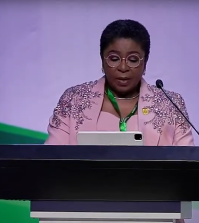Digital ID: US government poised for national rollout, while Australia finds its ‘North Star’ to harmonise standards

The US federal government’s Login .gov digital identity service could be expanded nationally, according to the terms of a draft executive order, while the Australian government has set out plans to join up the nation’s fragmented ID system.
The draft US White House order obtained by federal technology title FCW tasks the General Services Administration (GSA) with scaling up its Login .gov identity verification and authentication service – which enables users to access numerous government services using a single login – increasing its reach to the whole country.
Under the order, which cannot become policy until it is signed by president Joe Biden and has yet to be released by the White House, users of public benefits programmes would be given the option to use Login .gov or a digital ID platform run by the individual agency.
Government agencies would be able to offer private sector digital ID options, as the Department of Veterans Affairs already does alongside Login .gov.
Pledged during Biden’s State of the Union address last year, the order is part of the federal government’s ambition to reduce instances of fraud in its benefits system. The Government Accountability Office has made a conservative estimate that in the 18-month period from April 2020, during the COVID-19 pandemic, the US unemployment system lost at least US$60bn to fraud.
In a bid to clamp down on identity theft, the draft order would require the GSA to roll out a function that notifies individuals when their identity information has been given to a benefits programme to be verified, and allows them to stop the process if suspicious.
In addition to its use for access to benefits programmes, agencies that offer services defined by the US Office of Management and Budget as “high impact” – such as tax programmes, passport renewal, Medicare and the census, which are used by millions of Americans each year – would need to include Login .gov it as a sign-on and identity verification option.
Read more: UK government must create digital ID ‘super app’, says top financier
Australia finds its ‘true North Star’ on digital ID
Meanwhile, ministers in Australia have reached a turning point in putting the country’s long-fragmented digital ID ecosystem on a path to reform.
Following a meeting of data and digital ministers in Melbourne on 24 February, it was announced that various cross-state jurisdictions had agreed a “nationally coordinated approach” to digital ID credentials. This common goal would give Australian citizens “access and control over the use of digital IDs, making it easy for [them] to deal with government”, a communique said.
Victor Dominello, Australia’s minister for customer service and digital government, hailed the meeting as having identified a “true North Star… when it comes to digital identity and standards around credentials”.
“This means as each state and territory works towards more mutual recognition, e.g. an electrical licence in Queensland is accepted in New South Wales – it will also be seamlessly recognised across states and territories when that licence is in digital form,” Dominello said.
The push to harmonise Australia’s national identity standards and credentials is expected to make employment checks and vetting procedures more consistent, unwinding a patchwork of siloed approaches in favour of a uniform model across the country.
In a Tweet posted on the day of the meeting, Australia’s federal government services minister Bill Shorten praised Dominello’s efforts to “secure easy access to govt IDs on myGov, and [the] Service NSW app”.
Shorten oversaw the launch last year of Australia’s long-awaited myGov mobile app, which was created to integrate digital services across government agencies.
The federal government has been mulling whether to centralise digital ID authentication on its myGov platform – which has more than 25 million active accounts – after the Optus data breach exposed the personal information of almost 10 million customers last year.
Shortly after the breach, Australia’s then newly-elected Labor government brought in David Thodey, the former chief executive of Australian telecommunications company Telstra who also delivered a landmark review of the Australia Public Service in 2019, to audit myGov.
The recommendations in the report delivered by Thodey and an expert panel earlier this year included improving access to ID-based services such as driving licences, Medicare cards, senior citizen cards and work licences, and enabling citizens to use myGov to renew passports and enrol to vote. These changes are currently being considered by the Australian federal government.
Read more: Major review of Australia’s government service platform launched
Want to write for GGF? We are always looking to hear from public and civil servants on the latest developments in their organisation – please get in touch below or email [email protected]






















